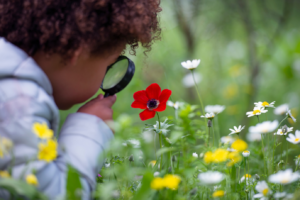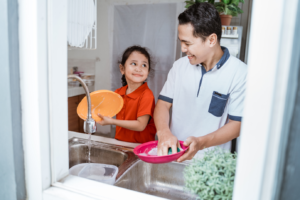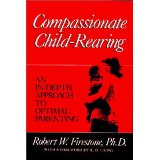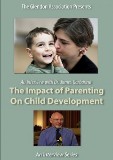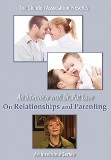5 Ways Working on Ourselves Can Benefit Our Kids
“Don’t worry that children never listen to you; worry that they are always watching you.”
– Robert Fulghum
 A lot of people marvel at how parenting has changed over the years. Some mock how it’s become so much more hands-on and child-centered. “We grew up like wild dogs in the ‘60s,” joked Jerry Seinfeld in a recent stand-up routine. “No helmets, no seat belts, no restraints. Anything came to a stop, we just flew through the air. I was either eating 100% sugar, or airborne.” Nowadays, we spend time thinking about how we want to parent. We read books. We make plans. Our involvement has led to terms like “helicopter parent” and “tiger mom.”
A lot of people marvel at how parenting has changed over the years. Some mock how it’s become so much more hands-on and child-centered. “We grew up like wild dogs in the ‘60s,” joked Jerry Seinfeld in a recent stand-up routine. “No helmets, no seat belts, no restraints. Anything came to a stop, we just flew through the air. I was either eating 100% sugar, or airborne.” Nowadays, we spend time thinking about how we want to parent. We read books. We make plans. Our involvement has led to terms like “helicopter parent” and “tiger mom.”
While, I’ve written about some of the downsides of over-parenting, I am a strong believer in valuing our kids as separate people from the start and using self-reflection to become a better parent. Yet, how we put this belief into action can mean the difference between going through the motions of a textbook form of “good” parenting and really modeling a way of being in the world that makes our children better and happier people. In other words, what we think matters isn’t necessarily what’s most affecting our kids.
Though it can hold long stretches of unmatched bliss, raising our children is a bumpy road. In the inevitable moments of tension and uncertainty, many of us worry about saying the right thing. Yet, our words only matter so much. Our kids absorb an enormous amount of what’s going on around them, and their primary focus is often on us. This is true especially early on when they look to us for safety, security, and survival. As parents, we serve as the foundation from which our kids can journey out to explore the world. They look to us to understand language and meaning. Our early influence helps build their sense of themselves, of others, and of the world. That is why what we model matters.
As keen observers, our children notice our behaviors toward others as well as how we treat ourselves. This includes things like the tense tone in which we speak to our partner, the disgust we express at the messy condition of the house, the impatience we have getting ready in the morning, the miserable expression on display when we look in the mirror, or the critical comments we make about ourselves. Children are particularly alert to how we treat them, for example if we are present and engaged when we are interacting with them or we are distracted and easily annoyed. Moreover, like all human beings, our kids are wired to be on alert for danger, to notice the negative, like the times we raise our voice or have an outburst of anger.
The reminder of how significant an impact our behavior has on our children can make us feel pressured or worried that we’ll mess up, but it should actually help us feel motivated and empowered. At any point, we can influence our kids in a profoundly positive way, and that pursuit may have a lot more to do with how we develop as people than how we perform as parents. Here are five key ways working on ourselves can benefit our kids.
- Show don’t tell. As parents, we frequently forget that our kids are watching us. We may be mindful of how we treat or talk to them, but then we assume they’re not paying attention when we’re on to other things or relating to other people. Children model behavior. It may be easier to tell our kids to be nice, stay calm, be patient, and show respect, but it’s better for them to see us doing these things.
We can show kindness to other people, not just in what we say but in our expression and our tone. We can model empathy by taking time to understand the internal world of another person and being compassionate toward their experience. We can keep calm in the face of stressors and show patience in the rush of daily life. If we want our kids to grow up to experience meaningful friendships and loving relationships, we should express warmth toward friends and take loving actions with our partner when our kids are around. Of course, our aim is to treat our kids with these same qualities, but in doing so, it’s helpful to remember that our actions speak louder than our words.
- Explore your emotions. Our kids trigger feelings in us that we don’t always expect. Some of these feelings are basic human reactions. When our toddler throws a fit in a grocery store, we may feel embarrassed. When our baby won’t sleep, we may feel frustrated. When our teenager takes risks, we may get scared. Yet, some of our more intense, stirred emotions that arise in times of stress have more to do with our past than the present. Our child’s fear can rekindle a feeling of fear we felt as kids. Their cry can resonate with our own early distress.
As parents, we may try to keep our cool and hide our reactions, or we may let them spill out in ways we regret. Either way, our inner emotional state is often displayed, be it verbally or non-verbally. Our expressions, micro-expressions, tone of voice, and body language send messages to our kids. So if we don’t admit, reflect on, and make sense of our reactions, we’re likely to affect our kids in all kinds of ways of which we’re not aware. If we don’t resolve and seek out healthy, honest, and adaptive ways to handle our emotions, we’re likely to be ruled by them. Plus, we fail to teach our kids by example how to do handle their emotions.
When we become a parent, we experience a wide array of feelings, and some of them may feel unacceptable to us. Some may feel overwhelming. When undesirable or unreasonable feelings come up, we should try to be curious, open, and non-judgmental toward ourselves. Beating ourselves up does not make us a better parent. We should remember the lesson we try so hard to teach our kids, “All feelings are acceptable. We can’t control our feelings, but we can control our actions.” When we interact with our kids, we can keep calm by meeting any feeling that upsets us with a few breaths and a real embracement of self-compassion.
As adults, we should seek healthy ways of dealing with feelings that arise rather than allowing them to run the show or burying them and denying their existence. If we are struggling with an onslaught of difficult emotions, we may find relief in talking openly and honestly with a friend, with our partner, or with a therapist. We can also begin to create an environment around our kids where saying what we feel is acceptable and encouraged. We can go against the instinct to hide the emotions we wrestle with from our kids. Instead, we can be truthful with them about what we feel, while communicating in an age-appropriate manner. Our goal is not to fall apart, burden, or incite guilt or responsibility in our kids, but to show them that talking about feelings is a way to help resolve them and build resilience. Naming our feelings teaches kids to do the same, helping them (and us) feel understood and calm.
- Change the way you feel about yourself. We may hope to build our kids’ self-esteem by telling them we love them every day, but if we spend a lot of their childhood hating ourselves, that messaging gets through. The critical ways we see ourselves, the unkind ways we treat ourselves, and the deprecating things we say about ourselves have a serious impact on our child’s self-perception.
If we want to help our kids feel good about themselves, we should work on conquering our own “critical inner voice.” This destructive thought process is built from negative experiences and attitudes that we’ve internalized.
When we tune out our loved ones and start paying more attention to what our critical inner voice is telling us, we are more likely to engage in behaviors that can be self-limiting, self-destructive, or hurtful to others. Challenging our inner critic isn’t about building ourselves up or inflating our ego but maintaining a kind, compassionate attitude toward ourselves. No one is perfect, and we all struggle. Our kids will greatly benefit from the degree of self -compassion we exhibit, internalizing this stance toward themselves and extending this approach to others.
- Make sense of your past. Attachment research shows that the biggest predictor of the attachment relationship we form with our kids is how well we’ve made sense of and felt the full pain of our own past. Dr. Daniel Siegel and I created an online course “Making Sense of Your Life” to help people identify and address unresolved issues from their past. In large part, we know from research, how valuable it is to future generations for parents to do this work. The more we make sense of our story, the more we will be able to be attuned to our children and repair ruptures when they occur.
We can come to know ourselves better and understand the source of our difficult, inappropriate, overreactions as parents. We’ll be able to make sense of the feelings that are stirred rather than being ruled by them. We’ll be able to challenge our critical inner voice by recognizing where it came from and rejecting its false messages about who we are and how we should behave. Finally, when we peel away the destructive overlays of our past, we’ll be able to choose our actions in our present lives and relationships with more strength, calm, and care.
- Pursue what lights you up. Last but not least, if we want to raise happy and fulfilled children, we have to be happy and fulfilled within ourselves. When we focus solely on parenting and lose touch with other sides of ourselves, we aren’t letting our children know us as lively and unique individuals. Raising kids takes a lot of time and energy, but it shouldn’t be an excuse to give up the other things that matter to us and give our lives meaning. Our kids need to see us laughing with friends, being close and kind to a romantic partner, pursuing interests, lighting up and appreciating the things we value in the world. When we approach our lives with this passion, we create a path for our kids to do the same.
As with each of these steps, the work we do for ourselves doesn’t (and shouldn’t) ensure that our kids choose our same interests or follow our exact footsteps. However, what we offer them is model for creating a life of meaning. As parents, we provide a secure base from which our kids can venture out on a path that is uniquely theirs, but to be that base, we have to be solid and secure within ourselves.



